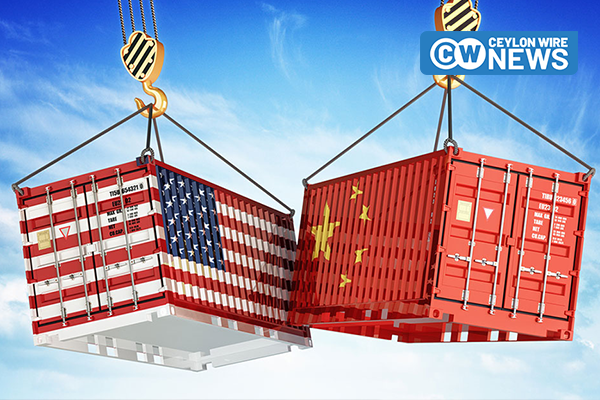President Joe Biden has implemented substantial new tariffs on a range of Chinese goods, including electric vehicles, advanced batteries, solar cells, steel, aluminum, and medical equipment. This policy is expected to escalate tensions between the two largest global economies. On Tuesday, the president highlighted that Chinese government subsidies allow its companies to operate without making a profit, skewing international trade in their favor.
In a statement made in the Rose Garden of the White House, Biden asserted that American workers can outperform anyone if the competition is fair. However, he criticized the Chinese government for its long-standing practice of heavily subsidizing its companies, describing it as cheating rather than competition.
In response, China immediately vowed to retaliate. The Ministry of Commerce in Beijing expressed its opposition to the U.S. tariff increases and pledged to take steps to protect its interests. Biden plans to maintain the tariffs implemented by his Republican predecessor, Donald Trump, while escalating others. This includes a fourfold increase in duties on electric vehicles to over 100 percent and a doubling of tariffs on semiconductors to 50 percent.
The White House announced new measures impacting $18 billion worth of Chinese imports, including items such as steel and aluminum, semiconductors, electric vehicles, critical minerals, solar cells, and cranes. While the tariffs on electric vehicles have garnered significant attention, they may have more symbolic than practical effects in the U.S., given the minimal importation of Chinese electric vehicles.
In 2023, the U.S. imported goods worth $427 billion from China and exported goods valued at $148 billion, according to the U.S. Census Bureau. This persistent trade deficit has become an increasingly contentious issue in Washington.
U.S. Trade Representative Katherine Tai stated that the updated tariffs were warranted due to China’s infringement on U.S. intellectual property rights. However, Tai suggested exemptions for several categories of industrial machinery imports from China, including equipment used in solar product manufacturing.
The imposition of tariffs occurs amidst an intense campaign between Biden and Trump, each vying to demonstrate their toughness on China. In response to Trump’s remarks that China was taking advantage of the U.S., Biden countered that it was Trump who had been enabling them. Biden criticized Trump for not addressing Chinese trade malpractices during his presidential term.
Karoline Leavitt, press secretary for Trump’s campaign, labeled the new tariffs as a “feeble and ineffective effort” to divert attention from Biden’s endorsement of Chinese electric vehicles in the U.S. Trump argues that this will result in job losses in the automobile sector. However, officials from the administration have stated that their actions, combined with domestic investments in crucial sectors, are unlikely to exacerbate the current inflation issue.
Despite positive economic indicators like low unemployment and above-average growth, Biden has found it challenging to persuade voters about the effectiveness of his economic strategies. A recent Reuters/Ipsos survey revealed that Trump held a seven-point advantage over Biden regarding the economy. Experts have cautioned that a trade dispute could escalate costs for electric vehicles, potentially undermining Biden’s environmental objectives and his ambition to boost manufacturing employment.
Biden has expressed his desire to compete with China without initiating a trade conflict and has engaged in direct discussions with Chinese President Xi Jinping to reduce tensions. The 2024 U.S. presidential contenders have both moved away from the previously dominant free-trade agreement era that concluded with China’s admission to the World Trade Organization in 2001. Trump’s extensive application of tariffs during his presidency from 2017 to 2021 sparked a tariff dispute with China.
In the anticipated tariff revision, Biden plans to increase tariffs on electric vehicles from 25 percent to 100 percent this year, resulting in total duties of 102.5 percent. Tariffs on lithium-ion EV batteries and other battery components will rise from 7.5 percent to 25 percent, and those on photovoltaic cells used in solar panels will increase from 25 percent to 50 percent. Certain essential minerals will see their tariffs elevated from zero to 25 percent. Additional tariffs are expected to be imposed in 2025 and 2026 on semiconductors, lithium-ion batteries not used in electric vehicles, graphite, permanent magnets, and rubber gloves used in medical and surgical procedures.
Several legislators have advocated for substantial increases in tariffs on Chinese vehicles or a complete prohibition due to concerns about data privacy. Currently, the import of light-duty vehicles manufactured in China is relatively low. The United Auto Workers, a politically influential union that has backed Biden, stated that the tariff adjustments would ensure a fair transition to electric vehicles.
The intensifying trade dispute between the U.S. and China, driven by Biden’s substantial tariff hikes on various Chinese commodities, underscores the complexities of global commerce. Despite the obstacles, Biden remains steadfast in his commitment to promoting fair competition and safeguarding American interests, likely posing significant challenges for China. The increased tariffs could limit the entry of Chinese products into the U.S. market, impacting China’s access to the profitable U.S. market.








